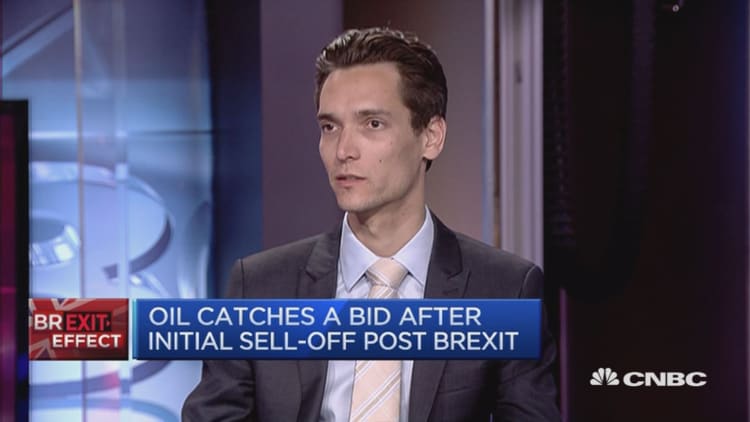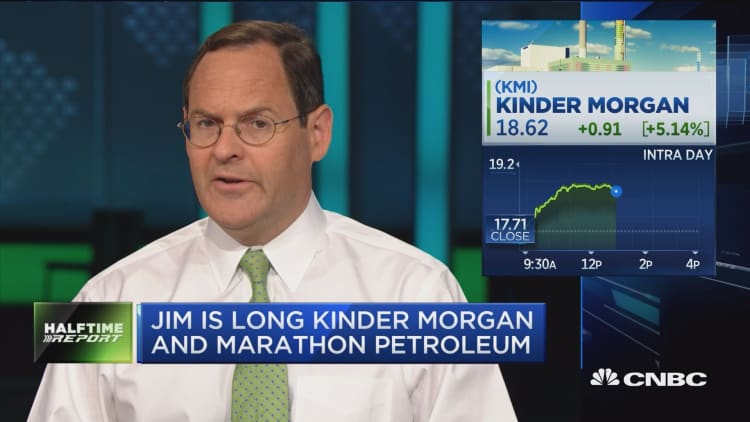



Trading in commodity markets might have resumed relative normality following Brexit turbulence, but one investment bank has detailed the downside risk that the oil price could still face.
"We believe the increase in macro-economic uncertainty (following the Brexit vote) raises downside risks to global GDP (gross domestic product) growth expectations," a global commodities research team at JPMorgan, led by Scott Speaker, said in a note Wednesday.
WTI futures had been on a steady path upwards in 2016 after a bruising two years. Nonetheless, the shock result last Friday morning saw prices plunge by around $4 on concerns that it could impact global growth.
JPMorgan has actually upped its forecasts on the commodity. Its Brent and WTI price forecasts for the third quarter of and fourth quarter of 2016 are now $53 a barrel and $55 a barrel, respectively. Its 2017 Brent and WTI forecasts are lifted to around $56.75 a barrel with a figure of $62 a barrel for the end of next year.
It believes that oil balances have tightened up following a surge in unplanned outages, but suggests structural conditions in the market will further keep the market in check for that latter part of 2016. However, the bank had a warning for clients that could yet mean its estimates will prove incorrect.
"The unexpected U.K. (referendum) result could yet trigger a more substantial downgrade to economic growth," it said.
U.S. corporate profits remain under pressure, according to the bank, which stated that earnings compared to U.S. company shares prices had fallen since the start of the year. Should the increased level of uncertainty precipitate a pullback in capital expenditure plans across the corporate sector then such a dynamic could yet lead to a "deterioration in the growth outlook", it added.
"Current high frequency estimates by J.P. Morgan Economics Research indicate that there is a 34 percent chance of a recession starting within the next 12 months," it said.
And weakening global growth would likely result in dipping demand for the commodity, thus leading to a pullback in prices. Although the bank states that global GDP growth would need to slow to around 0.8 percent for it to interfere with the market rebalancing that it predicts.


